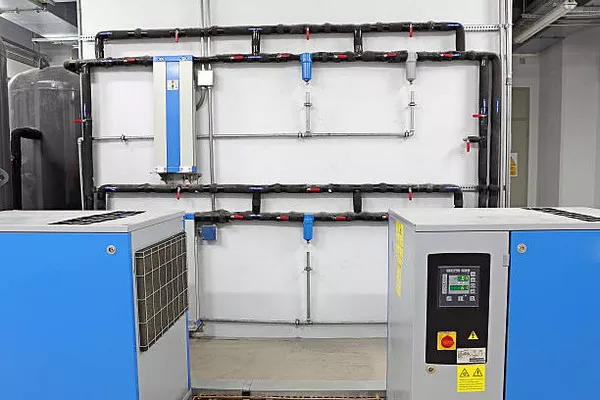Heating, Ventilation, and Air Conditioning (HVAC) systems play a pivotal role in maintaining comfortable indoor environments in residential, commercial, and industrial settings. At the heart of these systems lies a critical component known as the HVAC compressor. This article aims to delve into the functions and significance of HVAC compressors, shedding light on their role in temperature regulation and air quality enhancement.
The Basics of HVAC Compressors
HVAC compressors are mechanical devices integral to the refrigeration cycle of air conditioning and heating systems. Essentially, they are responsible for compressing the refrigerant gas, transforming it from a low-pressure, low-temperature state to a high-pressure, high-temperature state. This transformation is crucial for the effective transfer of heat, enabling the HVAC system to either cool or heat the indoor space.
The Refrigeration Cycle
Understanding the role of HVAC compressors requires familiarity with the refrigeration cycle. The cycle begins with the compressor drawing in low-pressure, low-temperature refrigerant vapor from the evaporator coils. As the compressor compresses this vapor, its temperature and pressure rise significantly. The now high-pressure, high-temperature gas is then directed to the condenser coils.
Heat Exchange in the Condenser Coils
In the condenser coils, the hot, pressurized refrigerant releases heat to the surrounding air or another medium. This process causes the refrigerant to transition from a gas to a liquid. The heat exchange results in the removal of heat from the indoor space, contributing to the cooling effect in air conditioning systems.
Expansion Valve and Evaporator Coils
The high-pressure liquid refrigerant then moves through an expansion valve, where it undergoes a rapid expansion, causing its pressure and temperature to drop significantly. This low-pressure, low-temperature liquid then enters the evaporator coils, located inside the indoor unit. As air from the space passes over these coils, the refrigerant absorbs heat from the air, evaporating into a low-pressure vapor once again.
Importance of Compressor Efficiency
The efficiency of the HVAC compressor is crucial for the overall performance of the system. A well-functioning compressor ensures that the refrigerant undergoes the compression process effectively, maintaining the desired temperature within the indoor space. Energy efficiency and the system’s ability to cool or heat efficiently depend on the compressor’s performance.
Types of HVAC Compressors
There are several types of compressors used in HVAC systems, each with its own set of advantages and disadvantages. Common types include reciprocating compressors, rotary compressors, and scroll compressors. The choice of compressor type depends on factors such as system size, application, and desired efficiency.
Reciprocating Compressors: These compressors use a piston-cylinder mechanism to compress the refrigerant. They are suitable for smaller HVAC systems and are known for their simplicity and cost-effectiveness.
Rotary Compressors: Rotary compressors operate using a rotating mechanism to compress the refrigerant. They are often found in mid-sized HVAC systems and offer a more compact design and quieter operation.
Scroll Compressors: Scroll compressors use spiral-shaped scrolls to compress the refrigerant. They are known for their efficiency, reliability, and quiet operation, making them a popular choice for residential and commercial HVAC applications.
Common Issues and Maintenance
Like any mechanical component, HVAC compressors are susceptible to wear and tear over time. Common issues include refrigerant leaks, electrical problems, and compressor motor failure. Regular maintenance, including cleaning coils, checking refrigerant levels, and inspecting electrical components, is essential to ensure optimal compressor performance and extend the system’s lifespan.
Advancements in Compressor Technology
As technology continues to advance, HVAC compressor technology is not left behind. Innovations such as variable-speed compressors, which can adjust their speed based on the cooling or heating requirements, contribute to enhanced energy efficiency and overall system performance. These advancements play a significant role in meeting the growing demand for sustainable and eco-friendly HVAC solutions.
See Also: How Much Is A New Ac Compressor?Factors & Considerations
Conclusion
In conclusion, HVAC compressors serve as the backbone of climate control systems, playing a crucial role in regulating indoor temperatures and maintaining air quality. The refrigeration cycle, which involves the compression and expansion of refrigerant, is made possible by the mechanical action of the compressor. The efficiency and reliability of the compressor directly impact the overall performance of HVAC systems, influencing factors such as energy consumption, cooling or heating effectiveness, and system longevity. As technology continues to evolve, so too will HVAC compressor technology, driving advancements that contribute to more sustainable and efficient climate control solutions. Regular maintenance and attention to compressor health are essential for ensuring the continued comfort and well-being of occupants in both residential and commercial spaces.

